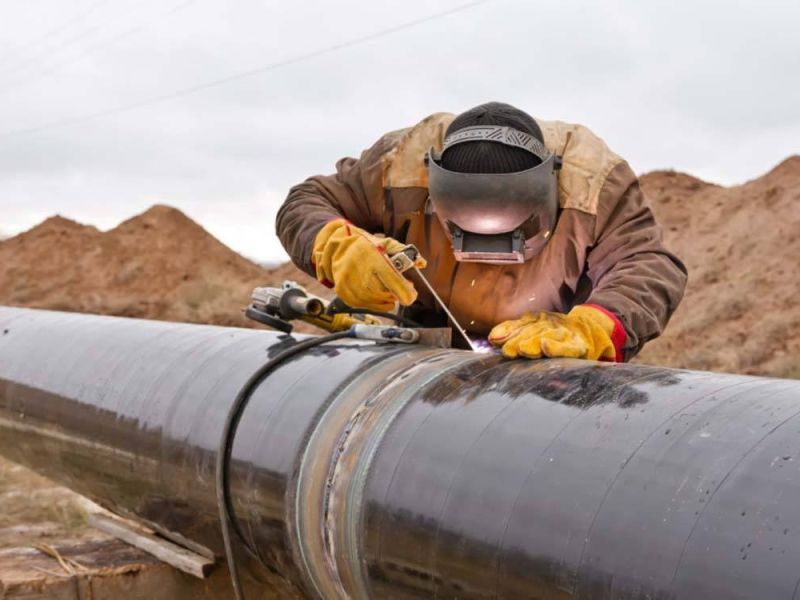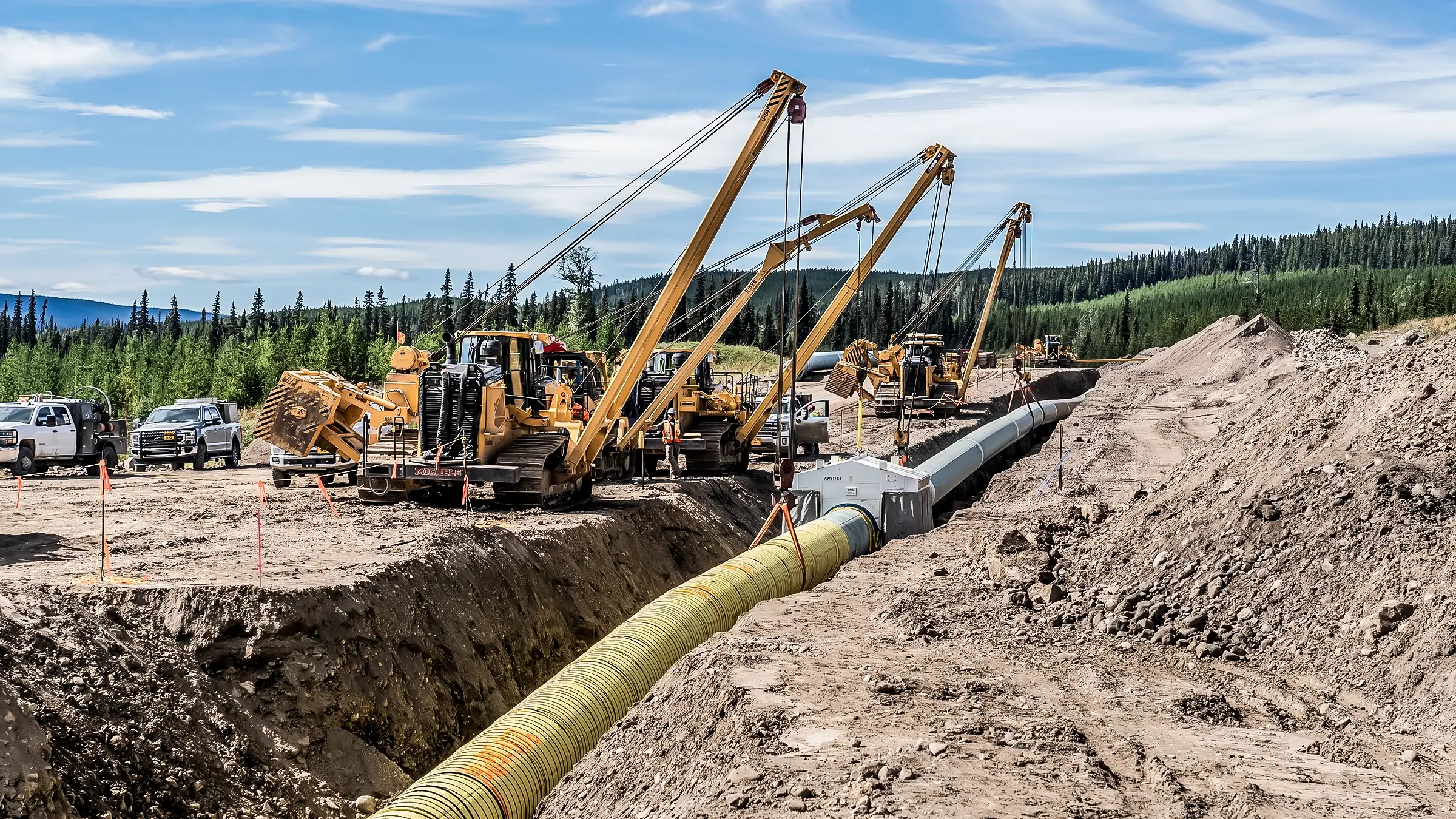A Comprehensive Overview to Comprehending Pipelines and Their Duty in Building and construction
Pipelines are necessary parts in construction, offering crucial features in gas, water, and waste monitoring. Their option and application can substantially affect a building's performance and safety and security. Various products, such as PVC, copper, and PEX, use unique advantages matched to certain requirements (Creek Pipe Texas). Comprehending these elements is vital for any type of building and construction task. As one explores the details of pipes, the implications for compliance and public health come to be increasingly noticeable
The Value of Pipeline in Construction
Pipes work as important channels in construction, promoting the motion of water, gas, and waste throughout structures and infrastructure. Their duty prolongs beyond simple transport; they are important for making certain the performance and safety of industrial and household atmospheres. Properly set up pipelines add to the efficient circulation of resources, making it possible for daily activities such as home heating, cooking, and bathing. Pipelines play a crucial duty in waste monitoring, guaranteeing that sewage and wastewater are efficiently eliminated from living spaces.The value of pipelines is also reflected in their impact on public health. Inadequate or defective piping systems can bring about contamination and hazardous conditions, making high quality products and installment techniques important. Additionally, pipes must comply with various building regulations and guidelines, which are created to secure both residents and the environment. Consequently, the relevance of pipes in building encompasses both practical capability and important health and wellness considerations.
Sorts Of Water Lines Used in Structure Jobs
Various kinds of pipelines play a considerable role in structure projects, each made to meet details requirements and applications. Among the most generally utilized pipeline types are PVC, which is immune and lightweight to rust, making it perfect for drainage and air vent systems. CPVC pipes, comparable to PVC, can withstand greater temperatures, usually used in warm water systems. Copper pipes are recognized for their toughness and dependability, regularly employed in pipes and home heating applications. Galvanized steel pipes, while much less common today, were as soon as a standard for water system lines due to their strength. Furthermore, PEX (cross-linked polyethylene) pipelines are gaining popularity for household plumbing due to their adaptability and resistance to scaling and chlorine. Cast iron pipes are favored for their sound-dampening buildings, commonly utilized in waste and soil systems. Each pipeline kind serves unique functions, making certain reliable operation in building jobs.
Usual Products for Piping and Their Residence
In building and construction, the selection of pipeline products is critical for guaranteeing durability and functionality. Metal pipes offer strength and resistance to high pressures, while plastic pipes supply corrosion-resistant and light-weight choices. Composite pipes incorporate the advantages of both products, making them versatile options for various applications.
Metal Pipeline Options
Steel pipelines are indispensable parts in building and construction, supplying a series of alternatives that satisfy various applications and environmental conditions. One of the most usual materials include steel, copper, and cast iron. Steel pipelines are understood for their toughness and resilience, making them suitable for high-pressure applications. Copper pipes are preferred for their deterioration resistance and antimicrobial residential or commercial properties, frequently used in pipes systems. Cast iron pipes offer outstanding sound insulation and are suitable for waste and water drainage systems. Each metal type has distinctive benefits; as an example, galvanized steel can stand up to rust, while stainless-steel uses remarkable corrosion resistance. Picking the proper steel pipeline depends upon elements such as price, environmental exposure, and the certain requirements of the construction job.

Plastic Pipe Advantages
Plastic pipelines have obtained popularity in building and construction as a result of their light-weight nature and convenience. These pipes, made from products such as PVC, CPVC, and PE, deal superb resistance to rust and chemical damages, making them ideal for various applications. Their simplicity of setup more boosts their appeal, as they can be cut and joined without unique devices. Additionally, plastic pipes are normally extra cost-effective compared to steel alternatives, adding to reduced general task expenses. Their smooth interior surfaces minimize rubbing and enhance flow prices, while insulation homes aid maintain temperature level control in pipes systems - Creek Pipe Texas. With a vast range of arrangements and dimensions readily available, plastic pipelines effectively satisfy the varied demands of modern-day building and construction tasks
Compound Pipe Characteristics
Composite pipelines incorporate numerous products to leverage their individual strengths, resulting useful content in boosted efficiency and longevity. Generally, these pipes include layers that might consist of ceramics, steels, and plastics, each contributing one-of-a-kind homes. The inner layer might be made of a corrosion-resistant material, while the external layer supplies stamina and impact resistance. This mix allows composite pipes to hold up against severe temperatures and stress, making them ideal for a large range of applications, including water supply and commercial processes. Additionally, composite pipelines are usually lighter than standard materials, promoting easier handling and installment. Their adaptability and adaptability to various environments make them a favored option in modern-day building and construction tasks, ensuring longevity and effectiveness in fluid transportation systems.
Applications of Pipes in Pipes Systems

Electric Avenues: The Function of Pipeline in Circuitry
In modern building, electric conduits play a necessary role in guaranteeing the secure and efficient directing of electric circuitry throughout structures. These pipes offer a safety pathway for electrical cords, safeguarding them from physical damage and ecological factors. Different products, such as PVC, steel, and adaptable avenues, are utilized depending on the particular requirements of the installation.Furthermore, channels assist in organizing electrical wiring systems, minimizing the threat of electric risks like short circuits or fires. They also help with less complicated maintenance and upgrades, as cords can be accessed and changed without considerable disturbance to the structure.Proper installment of electric avenues is essential for conformity with structure codes and safety and security policies. This structured approach not only boosts the long life of the electric system yet additionally adds to the general security and functionality of the building, making electrical conduits essential in modern building and construction techniques.
Picking the Right Pipeline for Your Job
How can one guarantee the appropriate pipeline choice for a building project? The option procedure begins with understanding the specific needs of the job, including the kind of liquids being delivered, stress ratings, and ecological conditions. Product choices, such as Steel, copper, and pvc, must be assessed based on longevity, rust resistance, and thermal properties.Next, one have to think about the pipe's size and flow capability to determine efficient procedure. Regulatory criteria and codes should additionally be abided by, as they determine the acceptable products and practices for details applications. Consulting with experts and making use of substantial resources can additionally aid in making notified decisions.Finally, reviewing the cost-effectiveness of numerous choices is vital, stabilizing preliminary costs with long-lasting upkeep and substitute costs - Creek Pipe check this Company. By diligently evaluating these variables, one can confidently choose one of the most suitable pipeline for their building and construction project, ensuring both capability and conformity

Maintenance and Examination of Piping in Building and construction
Appropriate selection of pipelines sets the structure for their long-lasting performance, making upkeep and evaluation critical parts in building. Regular upkeep guarantees that any kind of prospective concerns, such as leaks, corrosion, or obstructions, are determined and resolved quickly, decreasing additional resources costly repair work and project hold-ups. Scheduled examinations, including aesthetic evaluations and stress tests, play a crucial role in examining the integrity of pipeline systems.Additionally, monitoring environmental elements, such as temperature level changes and dirt conditions, can assist prepare for deterioration. Utilizing sophisticated modern technologies, such as CCTV for interior evaluations, can boost the performance of maintenance initiatives. It is crucial to record examination searchings for and maintenance activities to establish a thorough history of the pipeline systems. By prioritizing upkeep and inspection, building and construction professionals can prolong the life expectancy of their piping systems, guaranteeing they run efficiently and reliably throughout the job's duration.
Often Asked Concerns
Just How Do Pipelines Influence Power Effectiveness in Structures?
Pipelines greatly influence energy efficiency in structures by regulating heating and cooling systems. Proper insulation and materials reduce power loss, while reliable pipes layouts decrease water use, inevitably leading to lower energy consumption and operational costs.
What Regulations Govern Pipe Setup in Building?
Laws governing pipe installation in building normally consist of local and nationwide building ordinance, plumbing codes, and safety and security criteria. These warranty compliance with structural stability, material specifications, and wellness needs, promoting safety and effectiveness in building practices.
Can Pipes Be Recycled After Usage?
The inquiry of pipe recyclability is considerable. Numerous materials, such as steel and specific plastics, can be reused properly. The condition and kind of pipeline influence reusing feasibility, demanding proper analysis before disposal.
How Do Climate Condition Effect Pipe Performance?
Climate condition greatly influence pipeline performance. Extreme temperatures can create expansion or contraction, while dampness might result in deterioration. Furthermore, hefty rainfall can enhance dirt stress, affecting security and overall functionality of the piping system.
What Are the Indications of Pipeline Failing to Watch For?
Indicators of pipe failure include leaks, uncommon sounds, discoloration of water, minimized water stress, and noticeable corrosion. Regular assessments can help find these concerns early, making certain and stopping pricey fixings system functionality in the long-term. Pipes play a pivotal duty in waste monitoring, ensuring that sewer and wastewater are effectively removed from living spaces.The importance of pipelines is also shown in their influence on public health. In construction, the option of pipeline materials is essential for guaranteeing sturdiness and functionality. Steel pipes use stamina and resistance to high pressures, while plastic pipes supply corrosion-resistant and light-weight options. Additionally, pipes are made use of to eliminate wastewater, attaching bathrooms, sinks, and drains to metropolitan sewage systems or septic tanks.Different kinds of pipelines, such as PVC, copper, and PEX, are chosen based on aspects like resilience, price, and particular application needs. Just how can one guarantee the best pipeline selection for a building project?